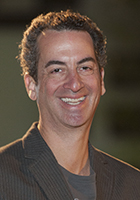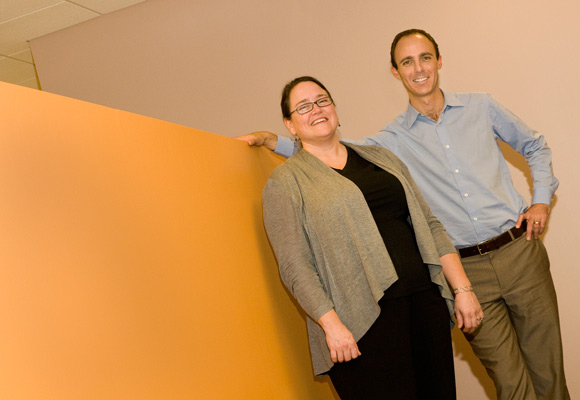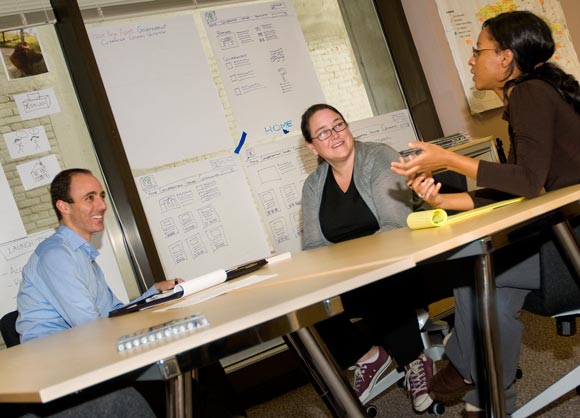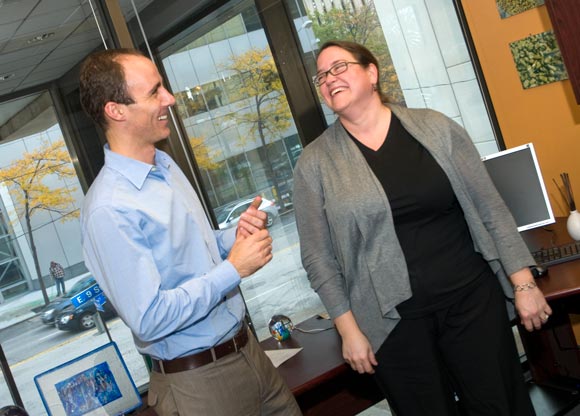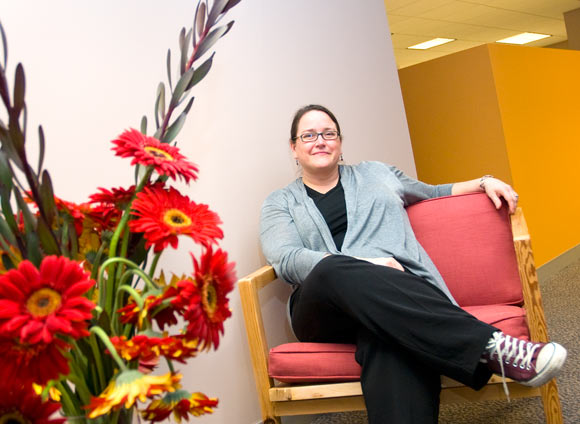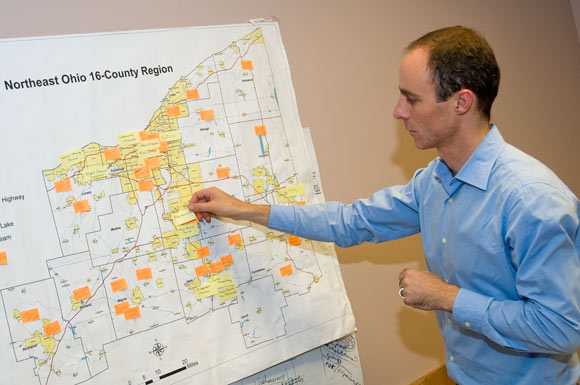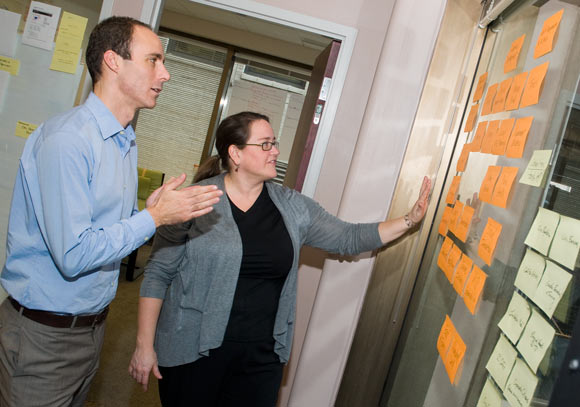q&a: dan moulthrop and noelle celeste, co-founders of civic commons
Had enough of the campaign mudslinging? Growing weary of the so-called journalism taking place on cable news. Embarrassed about what passes for civic engagement in this country?
Well, get in line. Survey after survey is finding that American citizens are overwhelmingly dissatisfied with traditional media outlets, which more often than not seem to be in a race to find a story's most pessimistic point of view. If only there was a place concerned citizens could go for substantive and civil engagement.
Soon, there will be. Launching post-election is Civic Commons, a modern-day marriage of online technology, citizen journalism, and civic collaboration. The mission? To inform, engage and lead local residents to action on any number of relevant, timely and important topics.
Fresh Water managing editor Douglas Trattner recently sat down with co-founders Dan Moulthrop, Curator of the Conversation, and Noelle Celeste, Director of Engagement, for a little two-on-one engagement of his own.
Fresh Water: So, you are launching post-election rather than before. Is that a missed opportunity?
Dan Moulthrop: No, we think the timing is perfect. We have been hearing a lot of shouting for the past six months on the campaign trail. Now is the time to start a real and civil conversation about the things that will help move this community and region forward. We are at a unique moment in time when there is a real desire, not only here but across the country, for people to engage in civil conversation. What we've seen over last few years with the Tea Party, cable news, and the ratcheting up of partisanship -- people are growing tired of the shouting.
FW: What is the objective of Civic Commons?
DM: The mission of journalism is the strengthening of democracy -- by providing information to citizens; by holding elected officials accountable. Thanks to the Internet and social media technology we have an opportunity to help create the next life for journalism. Journalism has been really good at the one-way presentational form of communication. New technology can provide citizens with better opportunities to engage with information and with each other around that information.
Noelle Celeste: Social media for social good.
FW: How does modern technology improve on traditional forms of media?
NC: News is fleeting: If you missed the snippet in the paper, or you missed the public meeting, then you missed the information and didn't get to participate in the conversation. Civic Commons will allow citizens to time-shift their engagement to better suit their lifestyle. It allows you to add to the conversation in a way that is more meaningful than just adding a comment at the end of an article. Our technology allows people to join the conversation at any point.
FW: What are some ways that citizens can "join the conversation"?
DM: Contributions range from sharing a link to an important report, making a comment about something someone else said, uploading a video through YouTube, or suggesting a specific action. Conversations are great and super-important, but conversations that lead to action are even better.
NC: Yeah, the goal isn't only to bring the things that happen offline in the real world online, but to move the online conversations offline and convert them into action. One of the options while participating in these conversations always will be to suggest an action. We believe that simply reminding people to suggest an action will encourage people to move offline into real activities, such as meeting face to face, voting…
FW: How do you decide which topics or "conversations" to focus on?
DM: The Civic Commons is issue and outcome agnostic. We are strong advocates for credible news and information, transparency and citizen engagement. But what that citizenry decides to direct its considerable attentions and energies on is up to them.
NC: Some of the topics we will be starting with are urban revitalization, vacant land reuse, talent retention and attraction, and county reform. Each topic will start with an issue page, where people can access a knowledge base of information so they can educate themselves on the issues. It will aggregate great information that already exists.
FW: You have said that Civic Commons wants to "tackle the issues, not each other." Online forums have a tendency to get nasty. What is your strategy for maintaining civility?
DM: We start by disallowing anonymous comments, like Facebook, which diminishes incivility by requiring a personal profile.
NC: In the real world we get to know a little bit more about each other every time we meet. Over time people build reputations. In this environment users will build their reputation with every question they ask, comment they make, video they upload, action they suggest, all of which will follow you in your profile. This lets people learn about you and the issues that are important to you.
FW: What will success look like for the Civic Commons?
NC: We'll know we are successful when we create civil conversations that engage people. When we find that those conversations inspire people to take action, to ignite new relationships, and promote face-to-face engagement and activity in the region. Down the road, we hope to develop and recommend public policy.
Like what you see? Subscribe to receive Fresh Water, Cleveland's fresh new e-zine, delivered weekly to your inbox.
